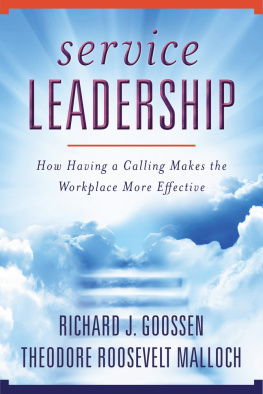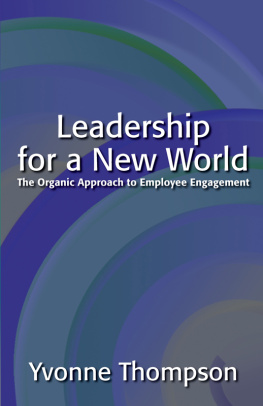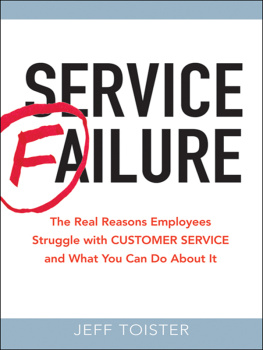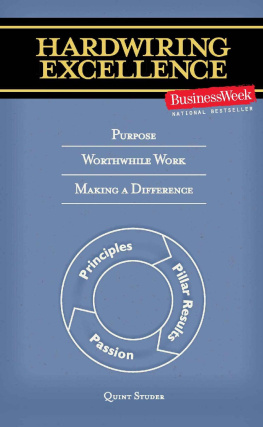


Copyright 2018 by Richard J. Goossen and Theodore Roosevelt Malloch
All rights reserved. No part of this book may be reproduced in any manner without the express written consent of the publisher, except in the case of brief excerpts in critical reviews or articles. All inquiries should be addressed to Skyhorse Publishing, 307 West 36th Street, 11th Floor, New York, NY 10018.
Skyhorse Publishing books may be purchased in bulk at special discounts for sales promotion, corporate gifts, fund-raising, or educational purposes. Special editions can also be created to specifications. For details, contact the Special Sales Department, Skyhorse Publishing, 307 West 36th Street, 11th Floor, New York, NY 10018 or .
Skyhorse and Skyhorse Publishing are registered trademarks of Skyhorse Publishing, Inc., a Delaware corporation.
Visit our website at www.skyhorsepublishing.com.
10 9 8 7 6 5 4 3 2 1
Library of Congress Cataloging-in-Publication Data is available on file.
Cover design by Rain Saukas
Print ISBN: 978-1-5107-3527-9
Ebook ISBN: 978-1-5107-3528-6
Printed in the United States of America
INTRODUCTION
T his book is about work, spirituality, and leadership.
Most people already have a strong sense of what these words mean, but they struggle with how precisely to find the right balance between them in their lives. Employees on the job have a sense that all three are important, but they dont always find that they are able to actualize their pursuit of them in the course of a careerat least not equally. Employers, on the other hand, have the sense that all three are connected, but they struggle to find the right mix. Most assuredly, employers feel that open pursuit of spirituality in the workplace can take a business organization into dangerous territory.
This book has been written to address the disconnect between a corporations attempt to establishtypically unilaterallyits own sense of meaning and purpose and an employees need to find an overarching calling in their work... without feeling one has already been imposed by Big Brother. Research shows an organization will not get the most out of its workforce unless it respects and facilitates each individuals framework for a pursuit of meaning. Often, this is done in the context of spirituality. Service Leadership is the title of this book, and its a reference to serving employees quests for purpose under the corporate umbrella.
Organizations that do not address existing core belief systems of employees will be disadvantaged in the marketplace. Organizations that do, on the other hand, stand to be richly rewarded for it with increased efficiency, productivity, and employee satisfaction. We recognize that significant energy is required to begin changing an organizationbut, as this book will show, the resulting advantages will justify the effort.
WHO IS IT FOR?
This book is for business leaders (or future business leaders) at any level who run organizations and want to do so more effectively. This book outlines a new way to think about leading as service; and it will be a useful tool to anyone or any company that seeks to go down this path. This book is also for business people who have the sense that an element of spirituality and calling has been lost in the contemporary workplace and who also have the feeling that tremendous business advantages could be realized if this element were to be reintroduced in a workplace-appropriate way.
FAMILIARITY, BUT NOT UNDERSTANDING
Religious terminology has often been absorbed into general usage and contemporary corporate-speak, without any concomitant understanding. We use the words, but we dont know where they came from or what thy used to mean. To begin with an extreme example, there is the notion of cult brands and cult following. Cults are typically understood as deviations from the norm, often with charismatic leaders who inspire extreme devotion among their followers. A leader may, in turn, be described as having a messianic complex. Mark Zuckerberg, the cofounder and CEO of Facebook, has been described by a former employee as Keeper of a messianic vision that, though mercurial and stinting on specifics, presents an overwhelming and all-consuming picture of a new and different world.... By imprinting this vision on his disciples, Zuckerberg founded the church of a new religion (Bokhari, 2016). There are often business lists of top cult brands such as Google and Lululemon, both of which are discussed later in this book. In terms of company leaders, one common term in high-tech circles is evangelist. This describes a person who is an advocate for the brand or the product and is particularly zealous. Some companies use such a formalized title while others refer to marketers using this mantle.
In corporate circles, there is often talk about the soul of the business or firmin other words, what the company is about deep down. Experienced business consultants and authors John Izzo and Eric Klein (1997, p. 7) have described the corporate soul as the experience of coming fully alive at work... foremost, an experience of touching a deeper level of vitality, inspiration, meaning, and creativity. They define soul as a term that signifies the basic vital energy that underlies and animates all human activity (p. 7). There is also the notion of guarding the soul. In a corporate context, the notion of selling your soul sometimes comes up. This is the well-known notion of a Faustian bargain, which is an agreement with Evil, in the form of the Devil, often (as in the classical story of Faust) with the paradoxical intention of achieving a higher Good that is otherwise corrupted. What has the person making the agreement traded to the Devil? Can the person avoid being trapped? A pact with the Devil is dangerous, for the only thing the Devil is said to want is, in fact, the persons soul. Business leaders are warned!
Last but not least, the notion of calling is a once-religious concept that has definitely gone mainstream. Calling is all the rage because employees are looking for inner direction and satisfaction in their work lives, and they can relate to a focus or force that might compel them in their work. Business leaders are comfortable with calling because while it invokes a powerful motivation, this motivation is no longer necessarily religious.
Despite this superficial familiarity with religious concepts, any discussion of concepts that relate to religion and spirituality in a corporate context can be easily misunderstood and misinterpreted. And while there may be references to religious terminology, there remains a lack of accord when it comes to how best to treat religion or spirituality.
Religion often makes contemporary corporations nervous. Rather than viewing religion as something providing people with a sense of meaning, guidelines for good ethical behavior, a desire to serve, and a positive force in society, corporations can see it as dangerous, regressive, proselytizing, intolerant, and dogmaticeven something to be kept out of a corporate context. Company leaders will need to have a balanced view of religion and particular faithsand people who hold nonein order to practice service leadership effectively. If your impressions of religion fall into the latter categories, dont worry! Youre in the majority. This book will be a guide to taking the best parts of spirituality and calling and using them in the workplace, while still respecting your employees spiritual privacy.
Next page











